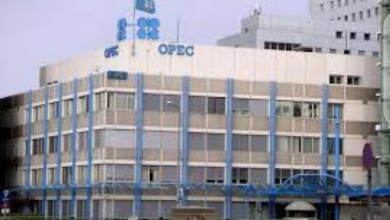NMDPRA insists downstream sector free of cartels

The Nigerian Upstream and Downstream Petroleum Regulatory Authority (NMDPRA) has dismissed suggestions that a cartel operates within the country’s downstream petroleum market, maintaining that its engagements with the Federal Competition and Consumer Protection Commission (FCCPC) support this conclusion.
Speaking at a panel session during the maiden conference of the Energy Correspondents Association of Nigeria (ECAN) in Abuja, the Authority’s Secretary and Legal Adviser, Dr. Joseph Tolorunse, said accusations of hidden or unclear fuel-pricing templates were unfounded.
According to him, the regulator consistently publishes the pricing framework as mandated by law.
Held under the theme “Four Years of the PIA: Achievements, Gaps and the Road Ahead,” the conference examined the impact of the Petroleum Industry Act (PIA) since its passage in 2021.
Tolorunse argued that the law has significantly reshaped operations in the sector, strengthening oversight and improving market structure.
Tolorunse explained that the NMDPRA’s mandate includes safeguarding consumers and ensuring a competitive market environment. A key part of that responsibility, he noted, is preventing price manipulation and identifying situations where a single operator may dominate the market.
“The PIA gives us authority to intervene in markets where dominance could result in monopolistic practices,” he said, adding that price controls could be activated when necessary to protect consumers.
He pointed out that only one domestic refinery currently produces petrol, a volume he described as insufficient to meet national demand.
To bridge this gap, the Authority issues import licences to qualified marketers to supplement local output—a practice he said aligns fully with the PIA.
The Nigerian National Petroleum Company Limited (NNPCL), he reminded the audience, remains the supplier of last resort.
“If a reputable trader meets the criteria, we can authorise imports. These are clear powers embedded in the PIA, and we are applying them to ensure the country does not lack products,” he noted.
Tolorunse added that the agency also works to guarantee steady supply of crude oil and natural gas as feedstock for refineries and processing plants nationwide.
The NMDPRA, he said, collaborates closely with the FCCPC to protect not only consumers but also operators, ensuring fair play throughout the transportation, storage and retail value chain.
Against criticisms that pricing reviews lack transparency, the NMDPRA official insisted that the Authority routinely publishes the pricing template on its website.
While marketers are free to set final retail prices, those prices must fall within the established cost-reflective framework.
“The claim that we operate without a template is simply inaccurate. The law requires us to publish it, and we do so,” he stated.
Also speaking at the event, the Head of Regulatory and Statutory Compliance at the Nigerian Upstream and Downstream Petroleum Regulatory Commission (NUPRC), Kingston Chikwendu, said the PIA had dramatically changed the structure and speed of regulation in the sector.
He recalled that, under the previous legal regime, approvals were often delayed, stalling growth.
The PIA, however, introduced strict timelines for approvals and even a “deemed approval” clause that activates when regulators fail to act within the stipulated period.
Chikwendu said this clarity has accelerated major decisions, including the Final Investment Decision (FID) recently reached by Shell Petroleum Development Company (SPDC) on two major upstream projects.
He also pointed to the successful licensing rounds conducted by the Commission, which he said achieved near-total subscription.
A consultant and Chairman of AHA Strategies, Henry Adigun, offered a broader perspective on the sluggish development of Nigeria’s pipelines, arguing that the challenge cannot be separated from the country’s broader investment climate.
He said persistent insecurity and crude theft have pushed many operators to rely on barges for transporting petroleum products instead of pipelines.
This shift, he noted, discourages investors who fear that expensive pipeline infrastructure may not attract sufficient usage to recover costs.
“When an investor observes that thousands of barges dominate the transport system, it becomes hard to justify long-term capital investment in pipelines,” he said.
However, Adigun acknowledged improvements in the gas-pipeline segment and expressed optimism that the completion of the Ajaokuta–Kaduna–Kano (AKK) pipeline will spur new networks and distribution routes.



